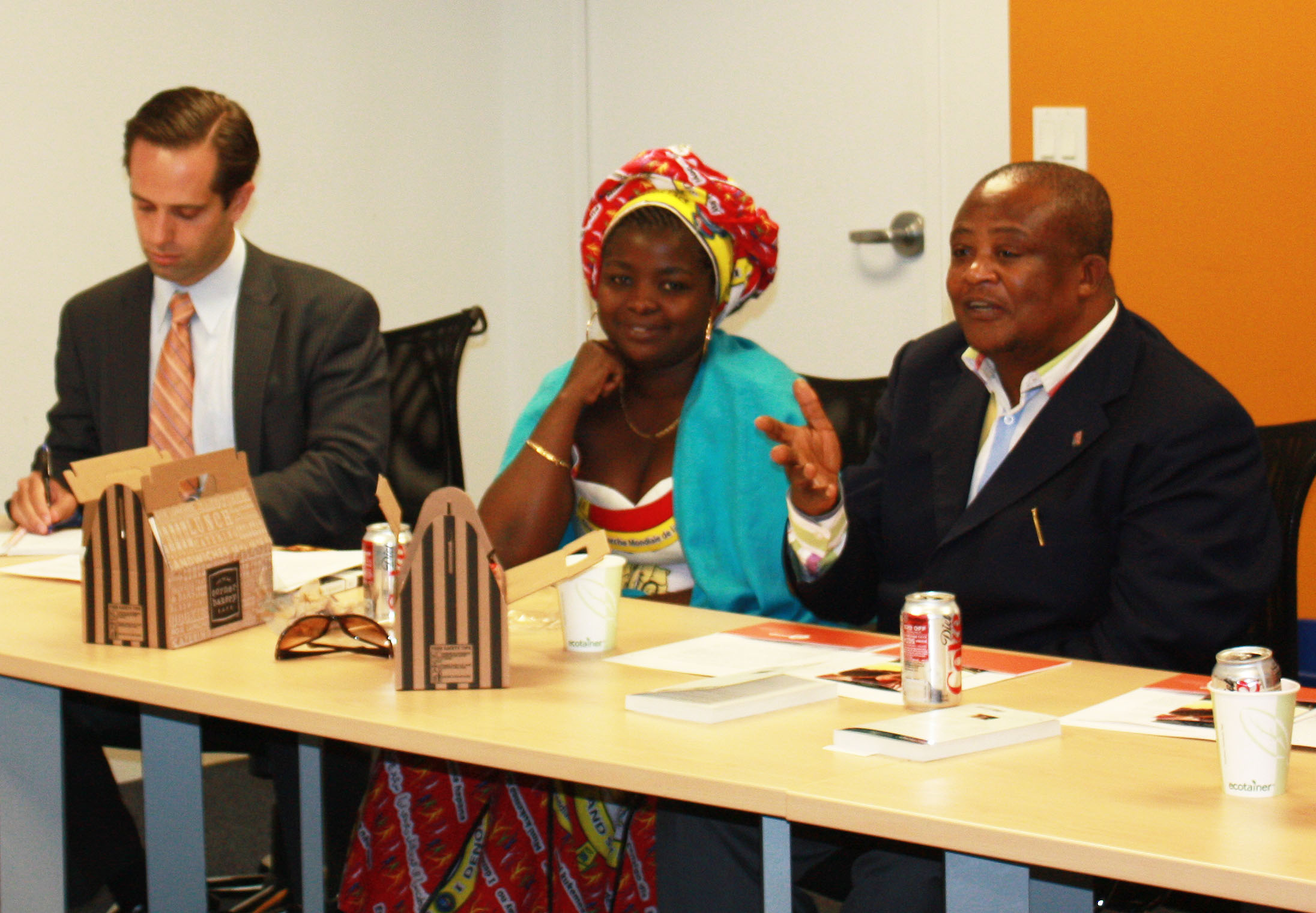
Four Congolese civil society activists recently joined international experts for a unique conference at the United States Holocaust Memorial Museum, Voices From Congo: The Road Ahead. The event—cosponsored by the National Endowment for Democracy, the Eastern Congo Initiative, and the U.S. Holocaust Memorial Museum—discussed the high stakes for the upcoming elections, and brought a local perspective to the current political and human rights situation in the Congo.
In an effort to speak with these Congolese activists on a more intimate level and to further the dialogue from the day before, the Enough Project hosted an additional meeting with the delegates on Wednesday at its Washington, D.C., office. The Congolese activists shared their stories with the staff at Enough, reminding us of the personal challenges and hardships that the local population still faces on a daily basis.
One of the activists, Annie Chebeya, is the widow of Floribert Chebaya, a human rights defender who was assassinated last year in Kinshasa. She spoke candidly to the Enough staff about the necessity for people in the U.S. and around the world to speak up for those affected by violence in the Congo because victims there have “no voice.” Her courage and determination to change the reality in the Congo was incredibly moving, as she continues to fight for the same issues that her husband was killed for supporting.
Another speaker was Chouchou Namegabe Dubuisson, a Congolese journalist and human rights activist who has used the radio to fight the injustices in her home country. As one of the founding members of the South Kivu Women’s Media Association, she advocates for women’s rights in the Congo and helps fight against sexual violence. Namegabe discussed in detail the pervasiveness of sexual violence in the Congo, emphasizing the relationship between the conflict minerals problems and the ongoing war. Attendees agreed that making the minerals trade in eastern Congo more transparent was an essential step toward peace.
Namegabe also spoke about how rape as a weapon of war is used in the Congo to terrorize families and displace entire communities. To prove just how deep-rooted the problem of sexual violence is in the Congo, she pointed out that when she began her activism work, there was no word for “rape” in local languages. In order to convey the horrible implication of rape to people in the Congo, they had to borrow a word from another dialect of their language, Kiswahili.
Hearing stories from local Congolese who have been directly impacted by the extreme violence and conflict in the Congo sheds a new light on the importance of fighting violence and mass atrocities in the region. The meeting brought the issues to a personal level and proved that while the scale and complexity of the problems are immense, the imperative to do something is even larger.
Photo: Delegates present at a lunch meeting about the conflict in eastern Congo (Enough)

